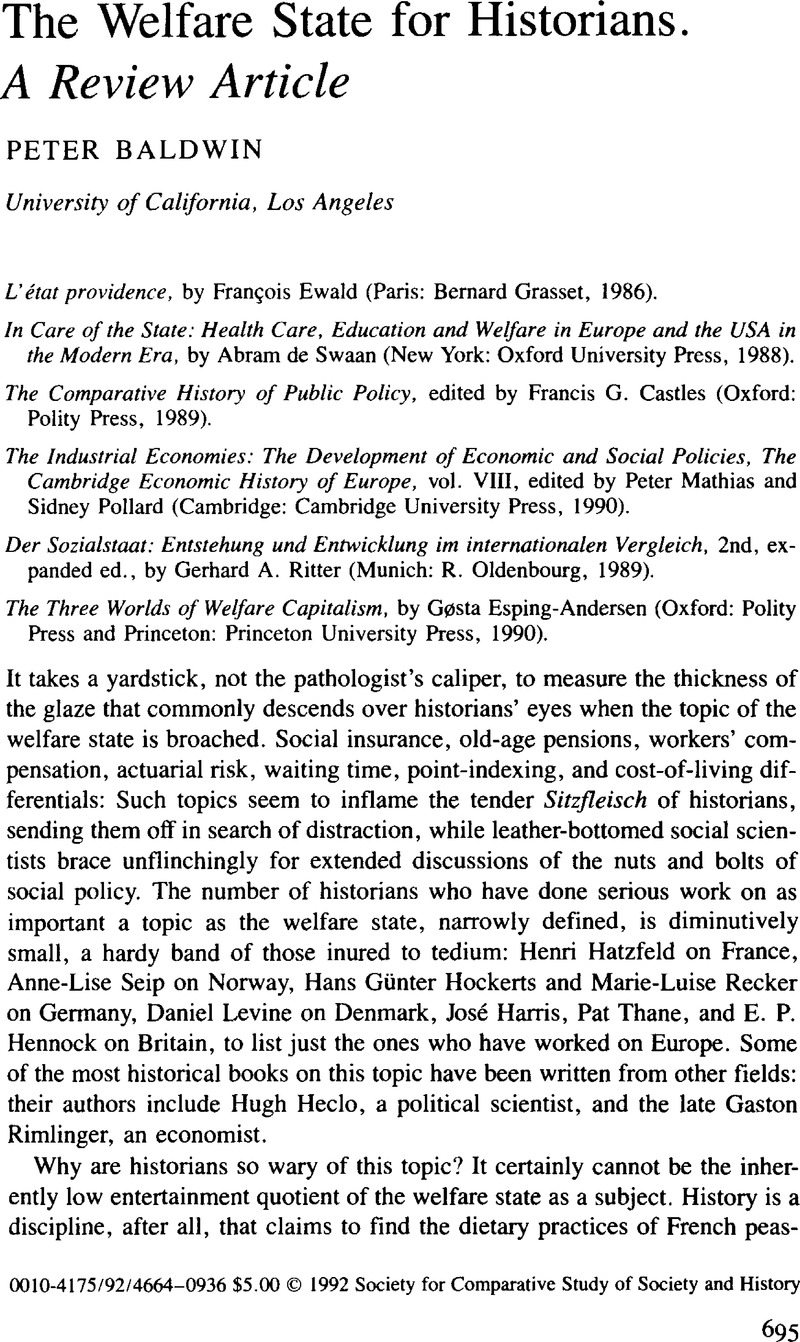Published online by Cambridge University Press: 03 June 2009

1 Schama, Simon, “Clio Has a Problem,” New York Times Magazine, 8 09 1991.Google Scholar
2 Foucault, Michel, “Un systéme fini face á une demande infinie: Entretien avec Michel Foucault,” in Bono, Robert, ed., Sécurité sociale: L'enjeu (Paris, 1983).Google Scholar
3 Work like that of Goodin, Robert, Protecting the Vulnerable: A Reanalysis of Our Social Responsibilities (Chicago, 1985);Google ScholarReasons for Welfare: The Political Theory of the Welfare State (Princeton, 1988);Google ScholarGutmann, Amy, ed., Democracy and the Welfare State (Princeton, 1988);Google Scholar and Moon, J. Donald, ed., Responsibilities, Rights and Welfare: The Theory of the Welfare State (Boulder, 1988).Google Scholar
4 Hacking, Ian, The Taming of Chance (Cambridge, 1990);CrossRefGoogle ScholarKrüger, Lorenz et al. , eds., The Probabilistic Revolution, 2 vols. (Cambridge, MA, 1987);Google ScholarPorter, Theodore, The Rise of Statistical Thinking, 1820–1900 (Princeton, 1986);Google ScholarGigerenzer, Gerd, et al. , The Empire of Chance: How Probability Changed Science and Everyday Life (Cambridge, 1989).CrossRefGoogle Scholar
5 Hirschman, Albert O., “Rival Views of Market Society,” in his Rival Views of Market Society and Other Recent Essays (New York, 1986).Google Scholar
6 Francis G. Castles and Deborah Mitchell, “Three Worlds of Welfare Capitalism or Four?” (The Australian National University, Graduate Program in Public Policy, Discussion Paper No. 21, October 1990). Four is also the magic number in the very suggestive mapping out of worldwide variations in the welfare state in Rose's, Richard “Is American Public Policy Exceptional?”, in Shafer, Byron E., ed., Is America Different? A New Look at American Exceptionalism (Oxford: Oxford University Press, 1991).Google Scholar